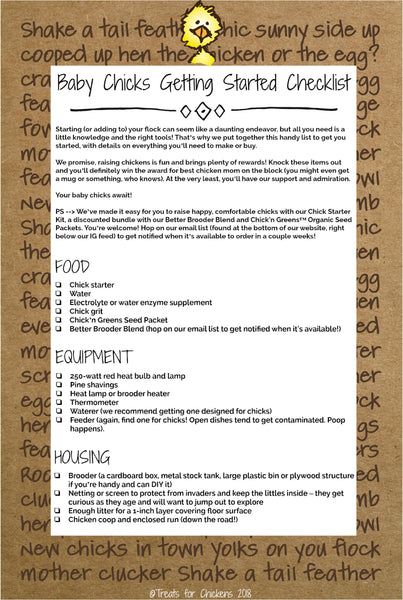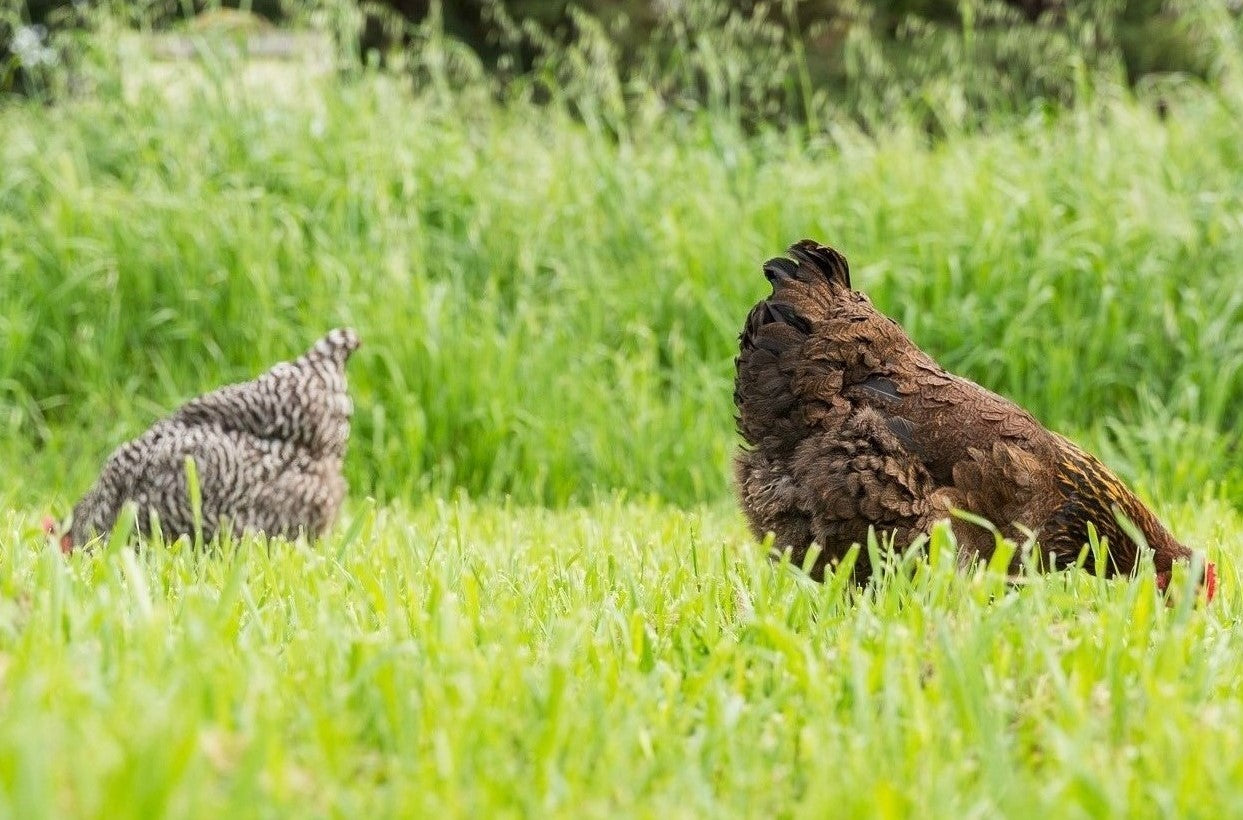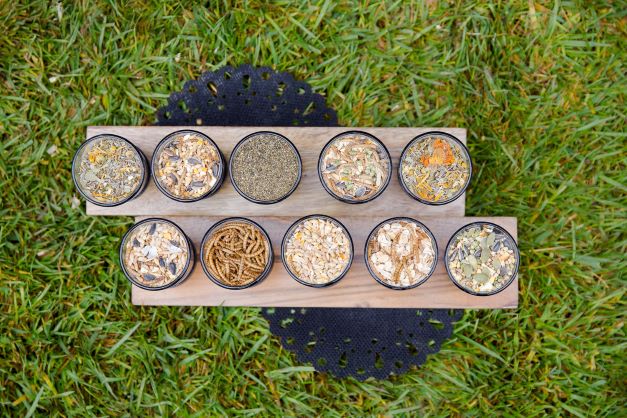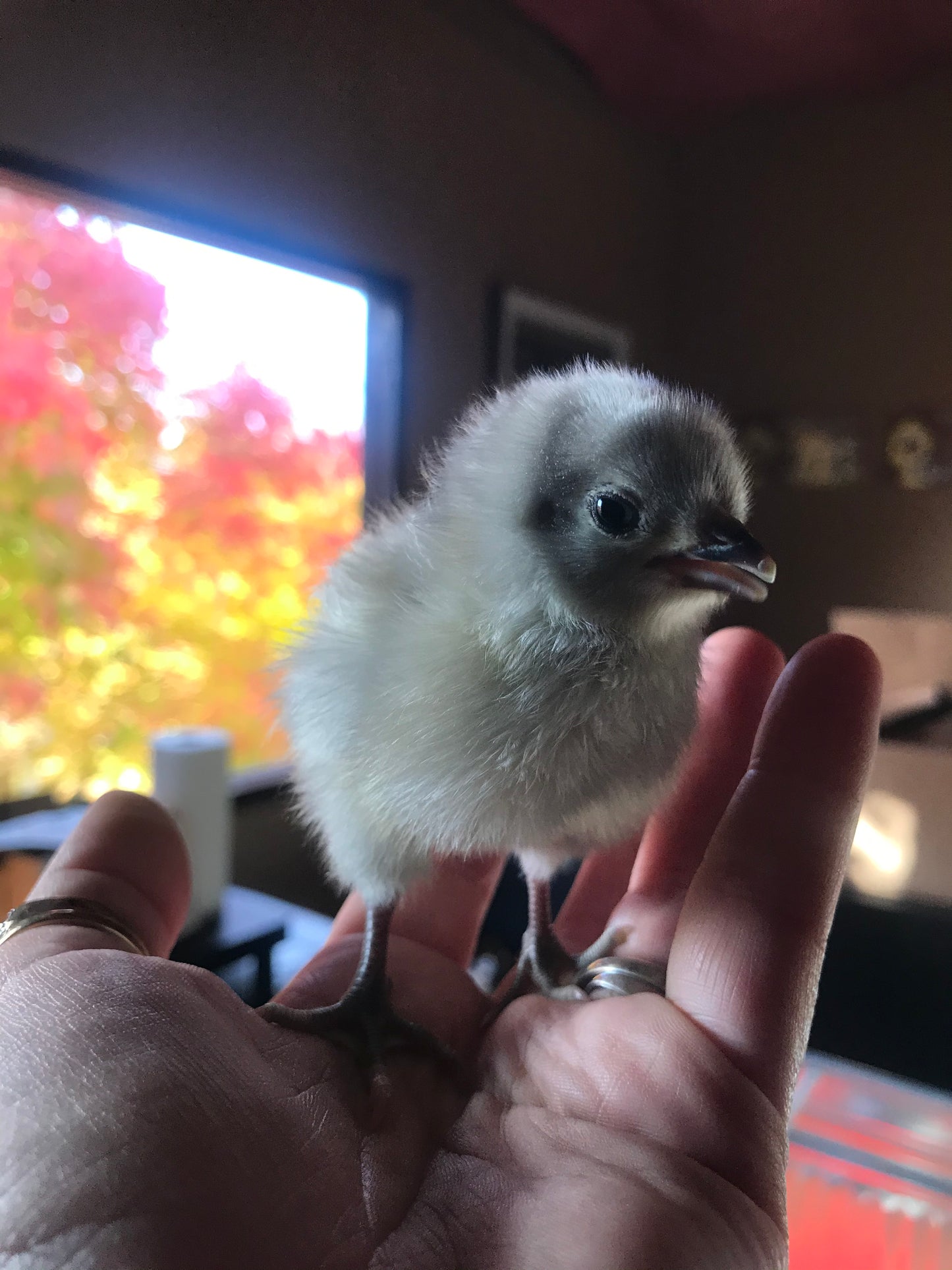
Hi Treats for Chickens community, it's me, Dawn!
It’s that time of year again: chick season! We’re talking the cute, fluffy variety that grow into our favorite feathered friends, of course.
How do you pick baby chicks? If this is your first time introducing baby chicks to your flock or your first foray into backyard chickens all-together, we’ve got ya covered. These adorable new additions take a little extra TLC, but it’s nothing you can’t handle.
From where to buy them to how to feed them, keep reading for our essential FAQs for raising chicks at home!
Q: How much do chicks cost?
A: Baby chicks can cost anywhere from $1-$35 each, depending on the sex and the breed. Your average Rhode Island Red or Barred Rock should only cost up to $5. More exotic, sought after breeds {you know, the kind that lay vibrant blue-green or dark brown eggs} will drive up the price. You’ll also pay it a little bit more for the females.
Q: Where can I get chicks?
A: The best place to get baby chicks is a hatchery (Meyer Hatchery is a great one) or your local feed store. CLUCK HERE to read other options- Where to Pick Up Chicks + How To Do It Like a Pro.
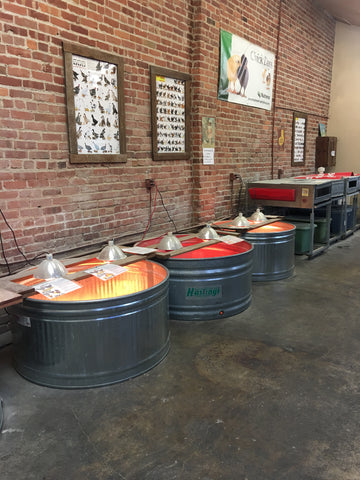
Q: How do I choose a breed?
A: Choosing a breed is about eggs and temperament. Some chickens are friendlier than others, some are noisier, and some do better with a coop versus free range. There are tons of breeds, so you’ll want to do a little googling to find the right pick for you! And don’t even get me started on the feather patters and then the eggs. All the variation of egg colors.
Q: What should I do before buying chicks?
A: You’re proactive, I like it! Before buying your baby chicks, you’ll want to set up your brooder with a heat lamp, draft guard (if your brooding in a large space), litter, feeders, fresh feed and safe waterers. Right before you pick the chicks up, you should check the temperature of the brooder to make sure it’s toasty and dry for their arrival. You’ll have a few weeks, but if you’re feeling motivated, you should make sure there’s enough room in the coop for the grown chicks, too.
Q: Wait...what’s a brooder? And litter?
A: Good question! The brooder is the cozy home that replaces the body heat of a momma hen. You can make your own with a {securely fastened} 250-watt heat lamp, pine shaving bedding and a draft guard - again, if you are thinking big. The litter is the bedding you put down to make your new babies safe and comfortable. This is a good tutorial to get you started!
We’ve made it easy for you to raise happy, comfortable chicks with our Chick Starter Kit, a discounted bundle...is available between March to September.
Q: How about once the chicks arrive?
A: Once your baby chicks make it home, make sure they have room-temperature water to drink and put food in their feeder right away. Make sure to gently dip each baby chick’s beak into the water so they know to drink. If they can drink first that’s ideal, but they’ll be hungry soon enough!
Q: Can you mix together chicks of different ages?
A: No way, jose. You’ll want to keep everyone separate until the baby chicks are old enough to hold their own. That’s usually 5 to 8 weeks along!
Q: Is it safe to receive baby chicks by mail?
A: Day-old baby chicks in larger groups can be delivered overnight by mail because they can generate enough heat by huddling together. There are also some hatcheries that will deliver as few as three. But, be sure to order from a reputable hatchery!
Q: Are chicks susceptible to sickness?
A: Sadly, mortality and sickness isn’t uncommon with baby chicks. In the words of The Lion King, it’s the circle of life. The best thing you can do is check in on your chicks at least twice a day and spend a few minutes with them. Test the temperature, check for abnormal stools, pasty butt, signs of picking, and look in the nooks and crannies for baby chicks that are sick or have “moved on”.
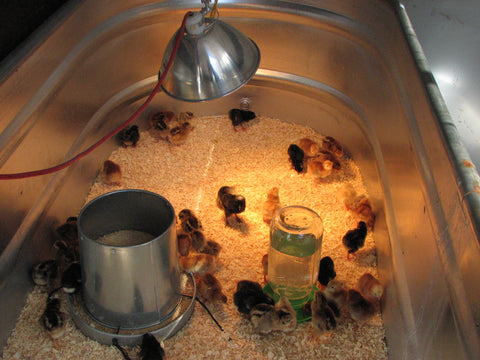
Q: What do I feed baby chicks?
A: For the first couple weeks your baby chicks will need to start with chick mash. It’s essentially just a ground up version of chick feed - it’s small so that it fits into their tiny little beaks! Orrrr give them Treats for Chickens specialize treats and supplements for your new arrival- Chick! Chick! and New Chicks in Town. Both eggs - clusive products have grounded ingredients that fits easily in your baby chicks' mouth. You’ll also want to start sprinkling in some grit around day three to help the baby chicks digest their food.
Q: When can my chicks go outside?
A: It’s tempting to see these little cuties run around the yard, but you’ll have to wait a few weeks because baby chicks should be fully feathered before they go outside. It takes time to grow a jacket! It depends on the temperature where you live, but 5 to 8 weeks old is usually a good estimate.
No matter which breed you choose, be patient and do some research. You can raise these chicks to lay more eggs, to control pets, or even just to keep around your home as pets. Enjoy shopping this Spring- make this season a Chick focused one.
Download Your Free Baby Chick Checklist!
-Dawn, Treats for Chickens 🧡

~ Shop Treats | Shop Problem Solvers | Shop Subscribe + Save ~
Let's keep your flock happy + healthy!
Got something to cluck about? Have other suggestions? Questions?
Help fellow chicken parents and leave a comment below!

